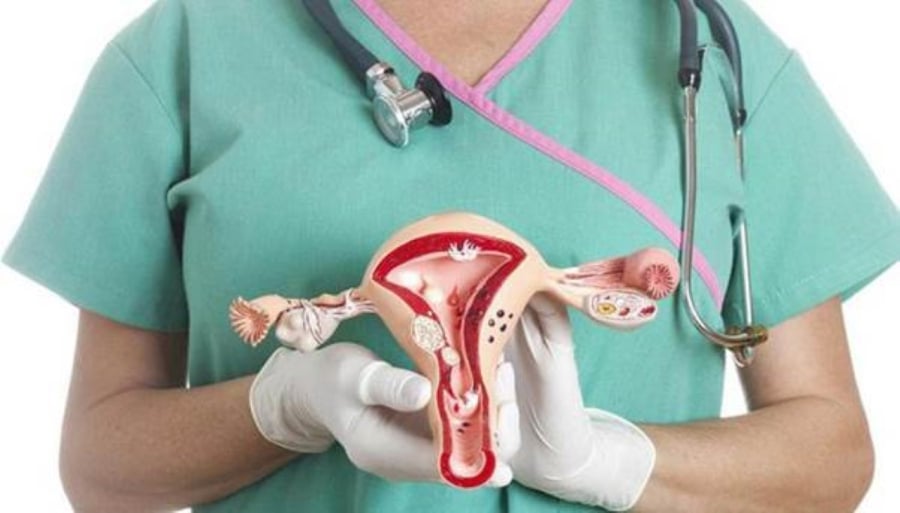Ovarian cancer occurs when one or both of the ovaries develop abnormal cells that grow out of the body’s control, forming malignant tumors. These cancerous cells can also invade and destroy surrounding tissues and organs, spreading to distant organs, causing secondary cancer.
In reality, the exact cause of the disease has not been found. Risk factors for the disease include women who have passed menopause, irregular menstruation; clomiphene; postmenopausal hormone replacement therapy; people with breast cancer.
In addition, there are genetic factors, women who have mothers or sisters with ovarian cancer, breast cancer or colorectal cancer have an increased risk of ovarian cancer by 2-4 times.
It is worth mentioning that the ovaries are considered the “second heart of women”, because not only are they responsible for producing eggs to ensure the function of motherhood, this organ also helps secrete estrogen – a hormone that functions to maintain youth, beauty, and the health of many women. Any damage to this organ can also cause many unpredictable consequences for women.

The following 4 signs warn women to get an ovarian exam as soon as possible. (Illustration)
When you notice that you are experiencing the following 4 signs, women need to get an ovarian exam as soon as possible:
1. Frequent bloating, feeling full even after eating a little
One of the most common signs of ovarian cancer is bloating. Patients will experience frequent bloating before and after menstruation, or after eating even if they eat very little.
According to health experts, the most common pathway for ovarian cancer is through the peritoneal cavity, the space in the abdomen that contains the intestines, stomach, and liver. When cancer spreads to the lining of the abdomen (peritoneum), fluid can accumulate inside the abdomen (ascites). This can also happen when cancer cells block drainage.
2. The lower abdomen is getting bigger and bigger
Because the volume of the ovarian tumor is very large, when it develops, it creates an abnormal enlargement and adhesions of the organs, leading to an increase in the size of the abdomen. Often accompanied by pain and many other specific symptoms. Or cancer causes peritoneal effusion to occur, the patient’s abdomen will become distended and the patient will feel bloated and uncomfortable.
3. Changes in menstrual cycle
Changes in the menstrual cycle can include: irregular periods, heavier or lighter than normal periods. The cause is thought to be because ovarian cancer can affect the endocrine glands, causing changes in the menstrual cycle. Increased production of the hormone estrogen can also occur in this case, altering the menstrual cycle.
4. Persistent digestive disorders
Ovarian cancer not only causes menstrual disorders but also affects the urinary and digestive systems. Therefore, the best way is for women to regularly check their intimate areas, any abnormal signs when going to the toilet and track their menstrual cycle.
The most recognizable digestive disorder symptom is changes in bowel habits such as indigestion, constipation, and diarrhea. It can alternate between the two and cannot be definitively treated with conventional digestive medications. The reason is that a growing ovarian tumor can put pressure on the bowel, or even spread to the colon.
Exploring the Use of Birth Control Pills for Acne Treatment
Are you curious about the advantages and disadvantages of taking daily birth control pills? Do women who take them experience better looking and feeling skin during their periods? DienmayXANH.com is here to discuss all of these questions and list all of the potential pros and cons of using birth control pills!



































